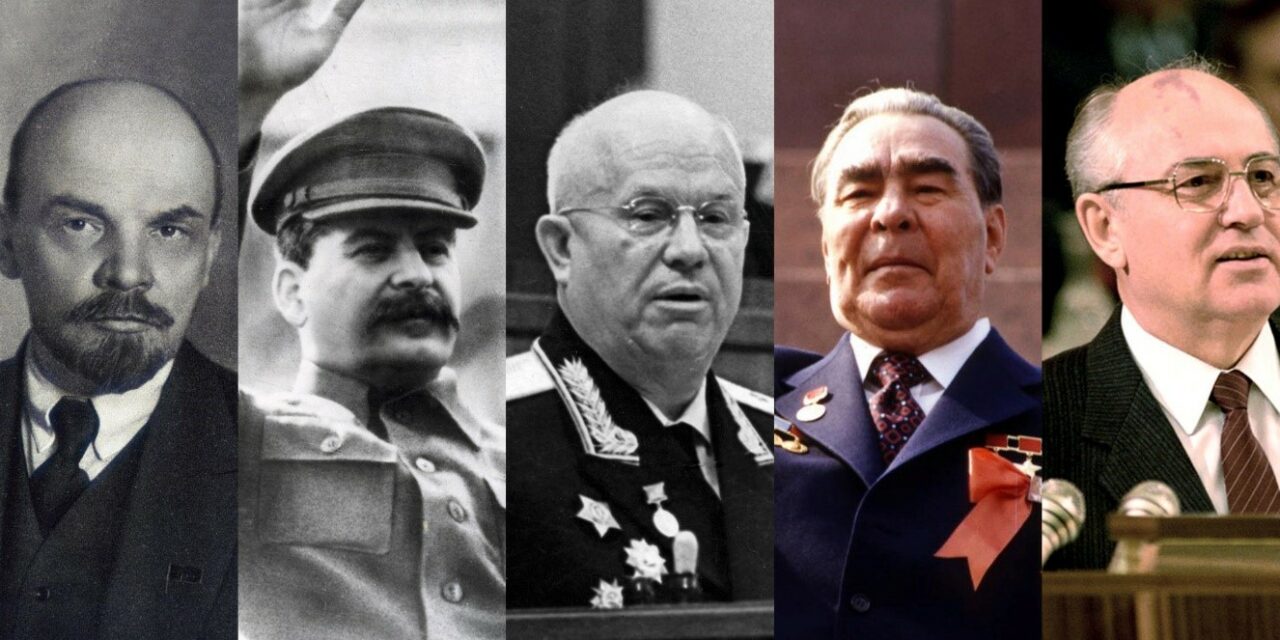Everything is about Russia these days. Analysts from right and left give their opinions on the war launched against Ukraine, speculate on the reasons and their background, examine the direction of events, and predict the expected outcome. But is it predictable? In the absence of knowledge of Russian great power politics, hardly.
The West (its intelligence services, military and political experts and, of course, their always very smart press) lives in the delusion that it has met and knows the Russians, so it can foresee the processes. How much this is not the case is even proven by an older film experience. I am thinking of one of the scenes in the 1983 James Bond film Octopussy, which takes place in the Kremlin. The Soviet political and military leaders consult on an agreement with NATO, which General Orlov opposes citing military superiority. And what does Orlov in the movie do? With a remote control, he "rotates" the semicircular row of chairs so that the participants can see the military map. In other words, according to the Americans, Moscow is at this technical level. The Hungarian viewer just smiled at this (not in 83, when Bond films were still banned in our country), because we knew that the rows of chairs in the Kremlin would only move at the push of a button if that button was used to blow up a mined room.
In other words, luckily (or rather unluckily) we knew the Soviet-Russians better than the Americans. And we didn't even really know them! Due to this, the outbreak of the Russian-Ukrainian war was considered impossible by almost everyone, saying that it was not in the interests of the Russians. And what happened?…
In order to understand Russia's actions, we need to know the driving forces, background and even history of Russian politics much better than average. Historian Géza Gecse's analytical volume entitled Russian Great Power Politics 1905-2021 provides an opportunity for this. Antal Ámon, the retired editor-in-chief of the Australian public radio, wrote a recommendatory analysis of the book. You can read his article below:
"Pushing the limits of knowability
A book that also helps in understanding the Russian-Ukrainian war
In 1939, Winston Churchill, the wartime prime minister of Great Britain, put it this way: Russia is an enigma that is wrapped in mystery at the depth of a mystery. Géza Gecse may have aimed to unravel this enigma and break down the mystery when he was working on his recently published book. Title: Russian Great Power Policy 1905-2021, published by Ludovika University Publishing. The book has been available online since June, it was presented in Budapest on September 16, but it is also available in printed form at the Püski Bookstore for those who cannot get it anywhere else, because it has already sold out in many places. In this way, the task for the Hungarian historian was actually defined well in advance by the English politician who was Russia's adversary, then friend, and then again.
Géza Gecse attacked the riddle, the mystery and the mysterious with an open helmet and won.
Its thoroughness is proven by the more than 1,200 footnotes, and its readability by the fact that even the footnotes contain as interesting and exciting additions to the subject as the main text itself. From the last century of Russian great power politics, we see that there is none. What was, changed from leader to leader, even in the supposedly monolithic communist era. In fact, often during the reign of a party general secretary. That makes the whole thing dangerous. Near and far. In the near future, the superiority of mass armies, which does not spare human resources, is a danger, and in the distance, the firing range of the nuclear arsenal is a danger. As well as the exportability of Marxist ideology to any part of the world.
These unpredictability made it necessary for our author to deal in depth with certain steps of the great power rivals in his book.
From here, it is self-evident to realize that the book is nothing more than an examination of Russia using a management science tool, the so-called SWOT analysis, which is named after the English equivalent of strengths, weaknesses, opportunities and threats.
Our author does not state that he used this method, but the result is the same. Comprehensive examination. Twice at that. It examines the empire both from the point of view of external influences and from the point of view of the strengths and weaknesses resulting from the internal transformations of Russian society.
We are holding a history book in our hands that is not afraid of numbers. We learn, for example: from 141 million in 2007, according to 2010 forecasts, Russia's population may drop below 127 million by 2027. Or, for example, that the Russian Federation inherited 76% of the Soviet Union's territory, 51% of its population, and 59% of its economic potential.
The reader feels like he is in a huge operating room, where Géza Gecse, a specialist in holistic examinations, examines the world's largest patient from head to toe. The results of the examination are not rosy for the patient. Bad prospects are in the majority. Although there are no signs of a fatal disease, the causes of many long-lasting illnesses are hidden in the depths of the imperial history. The burdens undertaken, often exceeding their strength, could not remain without a trace. The most responsible for these troubles are the leaders of the empire who did not consider the well-being of the people as the goal to be achieved, but instead pursued ideological and street fighter laurels, which proved to be a great luxury in the real world.
One of the main fears of our ancestors, Pan-Slavism, may not be well known to today's reader, so it is useful that our author devotes plenty of space to his topic. I quote from him: "Although the Soviet Union did not originally come to Central Europe as a result of the war launched for the liberation of the Slavic brothers, many of the Slavs welcomed it as a "Slavic liberator". Among them was King Peter of Yugoslavia, who declared on January 11, 1945: "fraternal alliance with Russia is one of the most deeply rooted desires of the Slavic peoples." With which we found royal proof that even behind a title and rank we can find a "do not hear, do not see Dömötör". In fact: Already in the fall of 1944, after the liberation of Belgrade, the Soviet troops committed atrocities not only against the population, but also against the soldiers of the Yugoslav People's Army. According to the population's report, there were 1,219 cases of rape, of which 111 ended in murder. - can be found in the book along with the specific justification that Gyilasz, the Yugoslav leader, quotes from Stalin's toast: "what is so terrible if (a soldier of the Red Army) wants a woman after the horrors?"
So much for the vain, dead-end ideas of Pan-Slavism, to which the Russian treatment of the Poles, which is now on a historic scale, and the bloody Ukrainian-Russian war of today, provide an uncontroversial answer.
Chasers of imperial dreams do not have an easy fate. Perhaps this is the most concise lesson of Géza Gecse's new book, which I can only recommend for a better understanding of both our past and our present world.
Antal Ámon is
the retired editor-in-chief of the Australian Public Service Radio"
The next presentation of the volume will be held on November 16 at the Press House of MÚOSZ in Vörösmarty Street. Participation is subject to registration, you can apply at the following link: https://muosz.hu/2022/11/11/orosz-nagyhatalmi-politika/












